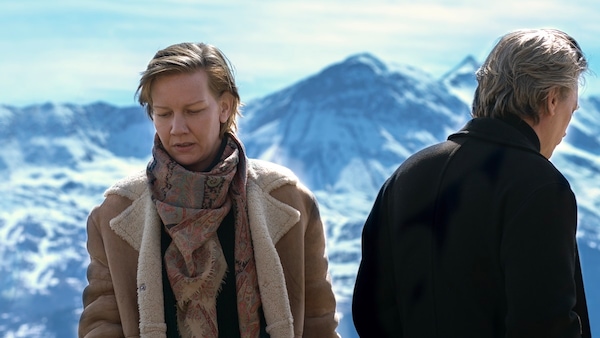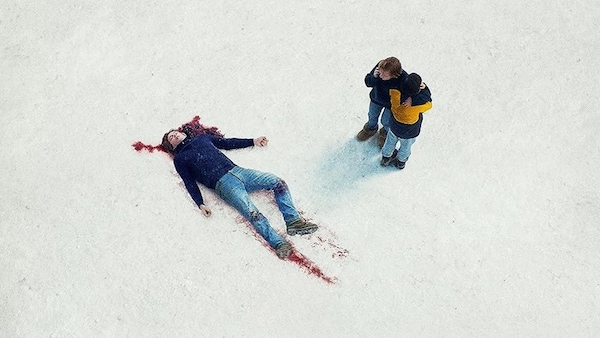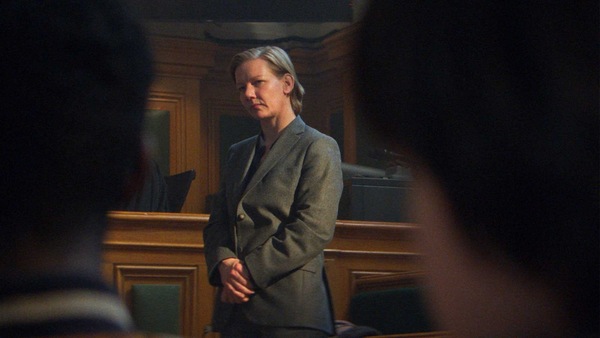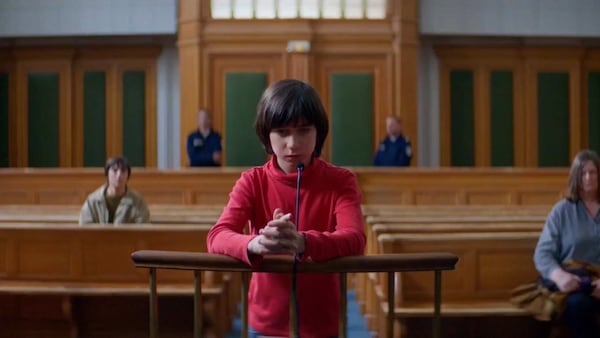Anatomy of a Fall movie review: A story about marriage, gender roles and mental health disguised as a courtroom thriller
Justine Triet's Oscar-nominated film follows the 'accidental' death of a popular author's husband and the fallout thereof.

Last Updated: 05.42 PM, Feb 02, 2024
Story: When novelist Sandra Voyter’s (Sandra Hüller) husband Samuel Maleski (Samuel Theis) is found dead, presumably having fallen out the window of the attic that he was renovating in their chalet in the French Alps, the police investigation quickly turns its focus on her and the possibility that he was pushed. The ensuing trial sets out to paint Sandra the villain, for having a more successful career, sleeping in different beds and having cheated on Samuel. Did she really kill Samuel?

Anatomy of a Fall review: Moments before the protagonist, Sandra Voyter’s husband Samuel is discovered dead by their visually-impaired son Daniel (Milo Machado Graner), he had been playing a particular song on loop and really loud, while she was trying to give a student an interview. Unable to have a conversation over this din, Sandra sends the student away with the promise of taking it forward at another meeting, and heads upstairs. What happens, thereafter, is entirely her version of things – Samuel blaring music while working was commonplace in the household, which she’d learnt to drown out with ear plugs that allowed her to work, and, even take a nap, until she is awoken by the shrieks of her son.
Absurd and implausible as this narrative seems to any third person, it’s what she says happened and what she then has to prove to a jury, which is no easy task when the prosecutor’s focus is on the power-balance in her relationship with Samuel and in establishing that he’d wound her up so much that she not only pushed him to his death, but had also hit him on the head with a blunt object before that.

Director Justine Triet cleverly manages to disguise a study of marriage, relationships, gender roles and mental health as a courtroom thriller. It doesn’t matter where, across the world, the onus of keeping the family together, raising kids, is almost always considered a woman’s primary responsibility.
Kudos to her if she also manages to have a career, but should she sidestep this and have ambitions and goals bigger than the ‘man of the household’ at the cost of jeopardizing the family structure, well, that’s a no-no. It’s okay for a woman to bear the lion’s share of family responsibilities day in and out for years together, but should that role be swapped for a finite amount of time, the sacrifices made along the way assume more importance.

In Triet’s film, the fact that Sandra was able to make something out of her career as a writer, while he could not, and that she sought intellectual stimulation at the risk of neglecting everything else, including her family, are seen as reason enough to pick her as the prime suspect in Samuel’s death. It does not matter that he was secretly recording their conversations, some of which were confrontational, and trying to use the content for his manuscript.
But could Samuel have been suicidal, even though his therapist didn’t read the signs? Did Sandra and Daniel also not see what was coming until it was too late? These are also some questions that Triet’s Oscar-nominated film addresses.
Anatomy of a Fall banks heavily on three performances – Sandra Hüller, Milo Machado Graner and, the dog that plays Snoop. A dialogue-heavy film, Sandra does much of the heavy-lifting not only with all that is said, but done too, going from an emotionally composed stiff upper lip to a teary-eyed mess and back.
Anatomy of a Fall verdict: Two-and-a-half hours of a lot of talking and little action is what Anatomy of a Fall is, so don’t go expecting it to be a thrilling courtroom drama. This is a film in which every word becomes important – who said what, when and how and how that is then perceived by who is listening in, in this case, society at large, and the judgements made thereof.
Subscribe to our newsletter for top content, delivered fast.

